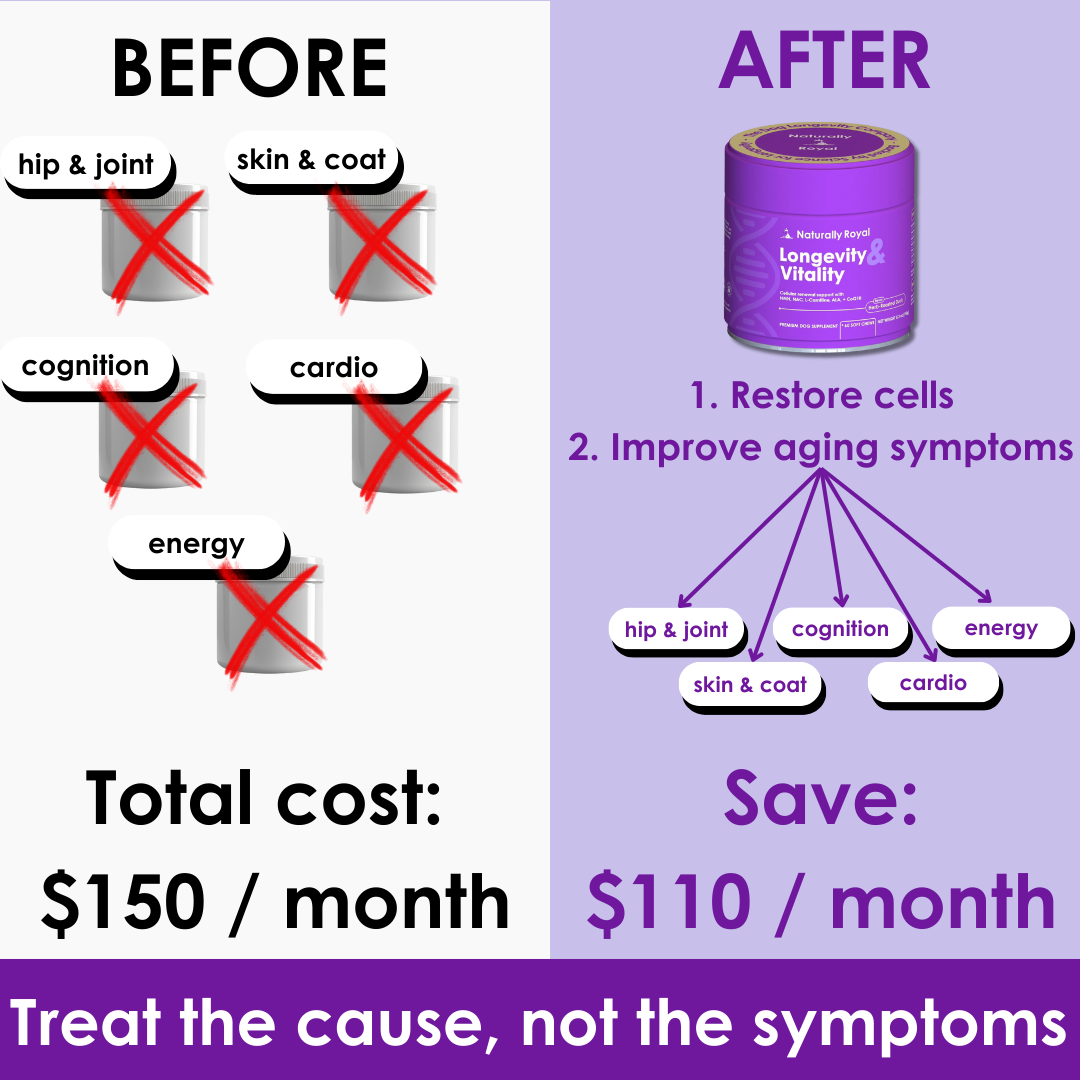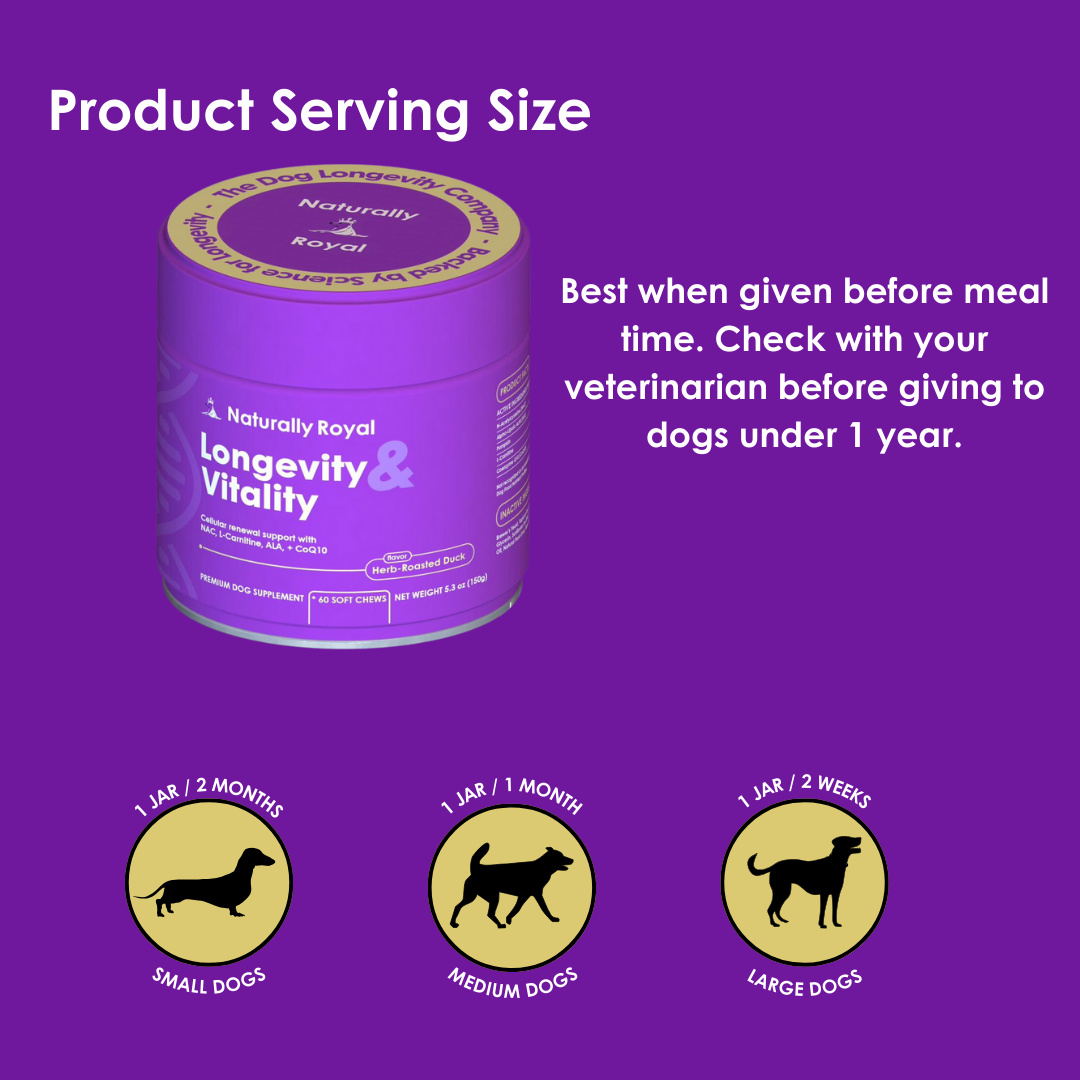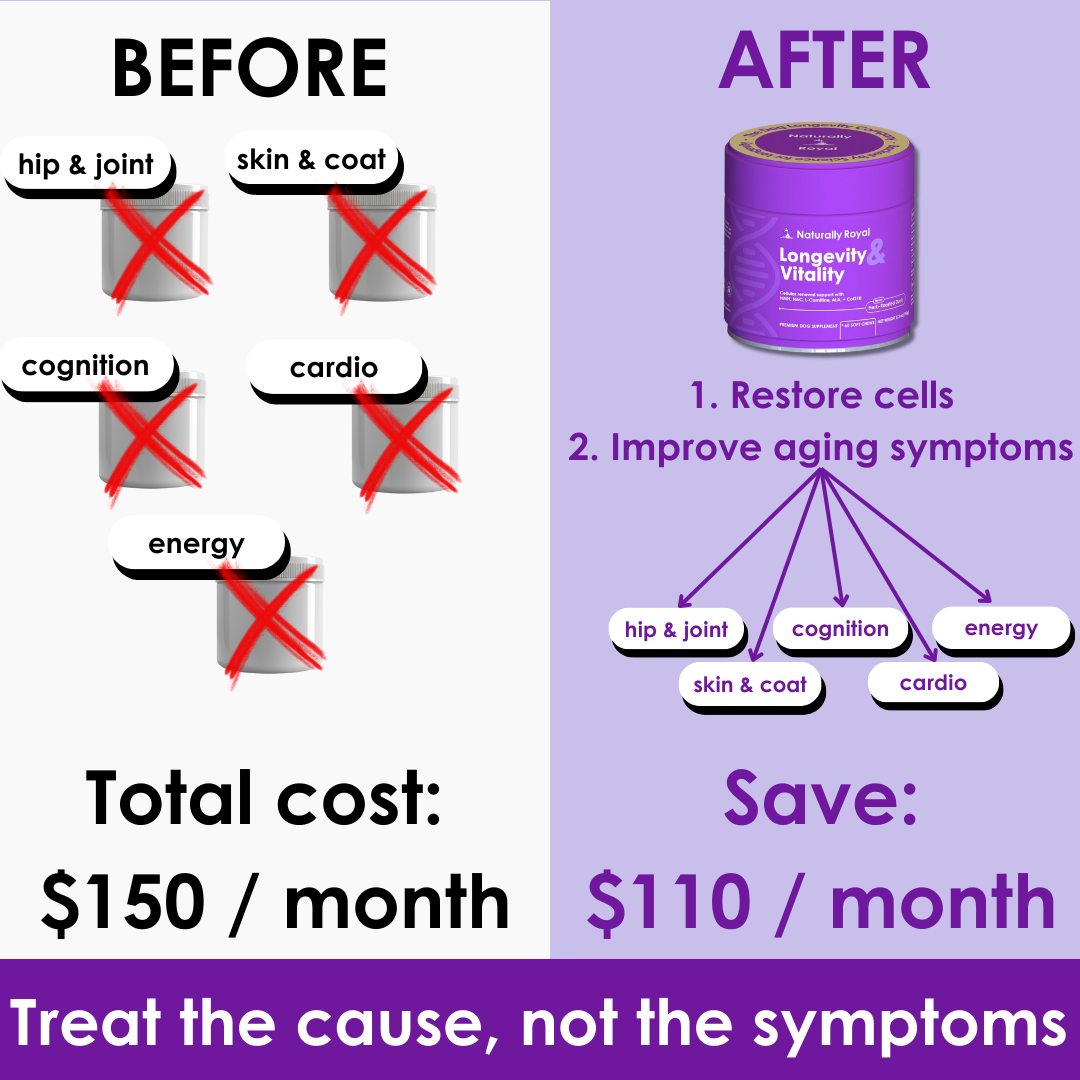The Importance of Back Health
A strong and healthy back is crucial for a dog's overall well-being and longevity. Just like in humans, a dog's spine supports its body, allows for flexible movement, and houses the spinal cord, which communicates vital signals between the brain and the rest of the body. Keeping your dog's back in top condition can prevent pain, improve quality of life, and even extend their lifespan. Here's what you need to know about maintaining your dog's spinal health:
Understanding Dog Spine Health
The Structure: A dog's spine is composed of small bones called vertebrae, which protect the spinal cord. Between each vertebra are discs that act as cushions to absorb shock and allow smooth movement.
Common Issues: Dogs can suffer from various back problems, including intervertebral disc disease (IVDD), spinal injuries, and arthritis. These conditions can lead to pain, mobility issues, and in severe cases, paralysis.
Key Strategies for Supporting Your Dog's Back Health
1. Maintain a Healthy Weight
Why It Matters: Excess weight puts additional stress on your dog's spine and joints, increasing the risk of back problems. Keeping your dog at a healthy weight reduces this strain and can prevent spine-related issues.
2. Regular Exercise
Benefits: Regular, moderate exercise helps strengthen the muscles supporting the spine, maintains flexibility, and can help manage weight. Activities like walking and swimming are excellent for dogs, but it's important to tailor the exercise to your dog's breed, age, and health status.
3. Proper Nutrition
Nutritional Support: A balanced diet rich in essential nutrients, vitamins, and minerals supports overall health, including spine health. Supplements such as omega-3 fatty acids and glucosamine may benefit dogs with arthritis or other joint and spine conditions, but always consult your vet before introducing any supplements.
4. Avoid High-Risk Activities
Preventative Measures: Certain activities can increase the risk of spinal injuries in dogs. Encourage safe play and avoid activities that involve high jumps or sudden impacts. Use ramps or stairs to help your dog get in and out of cars or onto high surfaces safely.
5. Regular Veterinary Check-Ups
Early Detection: Routine vet visits can help catch spine-related issues early, improving the chances of successful management or treatment. Your vet can also provide personalized advice for maintaining your dog's back health based on their specific needs.
6. Provide a Supportive Resting Area
Comfort Matters: A supportive bed is essential for spinal health, especially for older dogs or those with existing back problems. Orthopedic beds designed to support the joints and spine can make a significant difference in your dog's comfort and mobility.
The health of your dog's back is a critical component of their overall well-being and longevity. By taking proactive steps to maintain a healthy weight, ensure regular exercise, provide proper nutrition, and avoid high-risk activities, you can significantly contribute to the strength and health of your dog's spine.
























